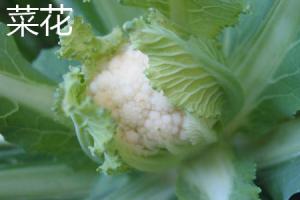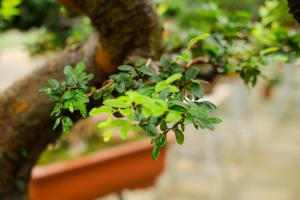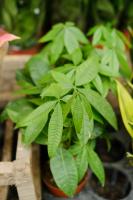Introduction
For many people, wasps are feared and disliked creatures that serve no useful purpose except to sting and annoy. However, did you know that wasps can actually be very beneficial for plants? In this article, we will explore the ways in which wasps help plants and why we should appreciate these often-misunderstood insects.
Pollination
Like bees, wasps can be important pollinators for many plant species. While they may not be as efficient at collecting pollen as bees, they make up for it in sheer numbers. Wasps are attracted to the nectar produced by flowers, and while they are feeding, they inadvertently brush against the flower's reproductive organs, transferring pollen in the process. This helps to fertilize the plant and ensure the production of fruits and seeds. Some plants that rely on wasps for pollination include figs, buttonbush, and goldenrod.
Biological Control
Wasps are also valuable for their role in biological control. Many species of wasps feed on other insects, particularly caterpillars, which can be destructive to plants. By preying on these pests, wasps help to keep their populations under control and prevent damage to the plants. This can be especially important in agricultural settings, where pest infestations can lead to significant crop losses. In fact, some farmers even use parasitic wasps as a natural form of pest control rather than relying on pesticides.
Seed Dispersal
Some species of wasps also play a role in seed dispersal. For example, the fig wasp is critical to the reproduction of fig trees, as it pollinates the flowers and also helps to distribute the fruits. After laying her eggs inside a developing fig fruit, the female fig wasp dies and is slowly broken down by enzymes within the fruit. This process helps to release the seeds, which are then dispersed by other animals that feed on the fruit. This mutually beneficial relationship between fig trees and fig wasps is essential for the survival of both species.
Conclusion
While wasps may not be as popular as other insects like bees, their contribution to the ecosystem and to plant health should not be overlooked. From pollination to pest control to seed dispersal, wasps play an important role in many aspects of plant life. By learning more about these insects and their value, we can come to appreciate and respect them for the important role they play in our environment.

 how many times do yo...
how many times do yo... how many planted tre...
how many planted tre... how many pine trees ...
how many pine trees ... how many pecan trees...
how many pecan trees... how many plants comp...
how many plants comp... how many plants can ...
how many plants can ... how many plants and ...
how many plants and ... how many pepper plan...
how many pepper plan...































